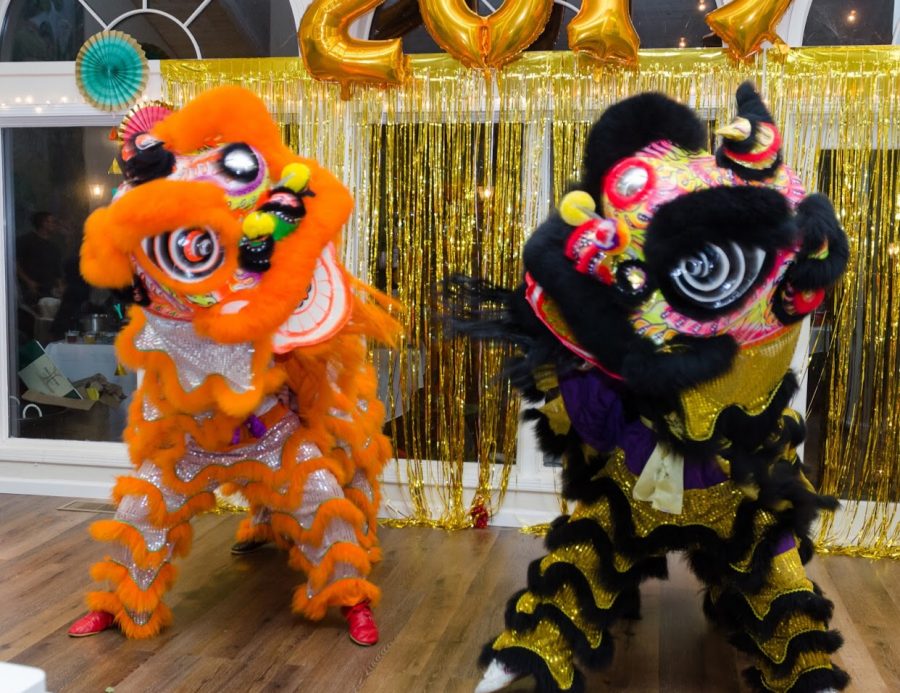Get cultured
Henry Yang
We often take our heritage for granted, but there’s always more to culture than our familial childhood experiences.
March 21, 2019
It’s a holiday. You sit quietly at a dining table, back slouched, eyes down, silent and uncomfortable while your parents’ friends and family, many of whom have appearances eminently similar to yours, talk and laugh in a language you barely understand. You try to prepare yourself but are still caught off guard when someone — probably an older relative — turns and asks you a question. Under normal circumstances you would be fine; however, not a single word of English comes out of their mouth. You catch a few words — after all you’re not that uncultured — but the meaning goes over your head. Embarrassed, you turn to your parents, who grudgingly translate. In response, you manage to stammer out a short, blocky sentence. The group nods and an older woman comments on how good your pronunciation is, but you know it’s not true. The table is quiet for a speck of time that feels like eternity, but it passes as the conversation switches once more, and you find yourself back where you started: back slouched, eyes down, awkwardly silent and uncomfortable.
For those of us who are second generation immigrants, this is our sad and inevitable fate. As time passes, we drift further and further away from the culture that our parents and grandparents grew up in, and sometimes, it ends up greatly affecting our perception of others. Consequently, we should make an effort to better understand their cultures and learn more about both them and their perspectives.
I wish I had taken this to heart sooner because as an American-born Chinese (“ABC,” as my cousins call it), I found myself in these situations nearly every time my parents’ family or Chinese-speaking friends came over.
And I hated it.
Every moment spent with those who spoke my native language fluently made me curse my own inability to fully understand my culture, my family and even myself.
So I stepped up.
I took the time to understand the history of my bloodline, to realize how unique my culture was, and it changed me.
I came to realize that my culture was not a burden to make me look bad in front of my better-at-everything cousins. It was something that was meant to build my character through the efforts of generations upon generations of those who shared my blood, and I believe that this choice of mine has played a great part in helping me become more understanding and knowledgeable about the reasons why some people act the way that they do.
It should be known that the act of understanding one’s self is, in essence, a prerequisite to understanding others, and culture teaches us exactly that. By becoming aware of one’s own culture, it is possible to recognize when exactly we are forcing our own views upon others.
Of course, by using the word forcing, I do not mean acting with hostile intent, but rather subconsciously viewing others through a lense that you do not yet recognize is the viewpoint of your culture. Seeing things from another point of view is made easier when one can distinguish between the values held by both onself and others.
An example of this is seen in how in Asian households guests are expected to remove their footwear before entering a house, while in many American households, it is considered the norm to wear shoes.
Of course, the Asian tradition of removing footwear has existed for so long that the reason behind it has been reduced to simple cleanliness, however, by recognizing that this is a part of one’s culture, one can discover exactly how their assumptions about the norm actually differ from others. Thus, by understanding this, one is able to broaden their mind and become aware of the fact that culture’s control on someone extends not only to encompass communication styles, but body language as well as eating habitsl.
Yet, while accepting one’s own culture sounds easy, for a number of people, it can be extremely challenging as it can inspire a feeling of loneliness, a difference from the norm. However, it is worth the effort as a new and shockingly relatable world is opened, establishing a sense of self pride as well as a sense of connection.
Dougherty has excelled in advertising such a connection, boasting a number of culture based clubs as well as an annual “Culture Festival.” Yet, from what I have seen, the culture here at Dougherty has not become more defined, but rather merged the students into one large homologous group. The lack of individuality and missing recognition of core beliefs that shape individuals may seem small now, but they can ultimately hurt a person in the long run.
Thus it can be seen that the fault for the lack of cultural knowledge lies not with the school (as Dougherty does encourage the spread of cultural knowledge), but with the students.
Circumstances have arisen that trace back to moments as early as elementary school in which students looked down upon other classmates for the way they acted and the food that they consumed, establishing a belief that stated “You don’t act like us, so you are not one of us.”
“I think it’s really the influence of things early in your life,” Honors Chinese student Ethan Lin said. “It’s not really easy to sit down with a plate of stinky tofu, when everyone else is making a fuss about the smell.”
And this is what many say when they turn away from their own culture, instead embracing the norm and blending into the crowd.
Yet, the fear of being alone is one that is misplaced. Culture opens up pathways to social groups, allowing you to enjoy who you are with people who share similar physical and mental characteristics.
I do not mean this as in stay within your own segregated groups, but to represent the first step that one can take after realizing why they are who they are.
By recognizing your identity and building confidence with those around you, it is possible to expand your social circle outwards, to other groups from a wide range of heritages.
If one does not, it is possible that the inability to connect and understand things from others points of views will remain with a person and make it hard for them to succeed socially, which could potentially affect their economic status as communication is becoming increasingly important in jobs.
The act of understanding one’s own culture is something that should be valued deeply. I highly recommend learning more about one’s own customs, as doing so opens forth a world of pride, beauty and understanding that which was once unattainable.



